Composting Guide: Can Egg Cartons Be Composted? Know the Facts!
Pondering whether egg cartons can be composted? You’re not alone! Many of us are torn between disposing or re-using this often discarded item. As a committed eco-enthusiast, I’ve delved into this question myself, and I’m excited to take you on this enlightening journey. This guide will help you in understanding the composting potential of egg cartons, providing practical steps to start using them for boosting your garden soil.
Nothing beats the satisfaction of reducing waste and caring for our planet, right? Together, we’ll explore how different types of egg cartons can be effectively composted. Our mission? Healthier home environment and a thriving garden! Making non-toxic choices was never this easy and rewarding. Let’s get started, shall we?
Composting Egg Cartons: Why and How?
Composting is such a wonderful way to give back to the earth, and for more detailed information on how to compost effectively at home, check out the resources available at the EPA’s composting guide. It’s amazing how organic matter like paper and food scraps can transform into rich, nutrient-packed soil. A question I often come across is, can egg cartons be composted? The answer is yes, but there’s a caveat. Only those made from biodegradable wood pulp or recycled paper can go into your compost bin.
By choosing to compost egg cartons, we’re not just reducing waste sent to landfills. We’re also helping our gardens flourish with essential nutrients. Composting plays a small yet significant role in tackling environmental issues, such as climate change.
Egg cartons fall under the category of brown matter, thanks to their high carbon content. When you toss them into your compost pile, they help balance the green matter from kitchen scraps, which are rich in nitrogen. This balance is key to efficient composting and creating that earthy, fertile compost we all love.
Types of Egg Cartons and Their Compostability
Understanding the different types of egg cartons is crucial for determining their compostability. Let’s dive into the details below.
Paperboard Egg Cartons
Paperboard egg cartons, made from recycled paper or wood pulp, can become a valuable part of your compost. Before adding them to your compost bin, make sure they are free of stickers and inks. Tearing them into smaller pieces will help they break down faster. These cartons provide the necessary carbon to balance your compost’s carbon-to-nitrogen ratio.
Plastic and Styrofoam Egg Cartons: Can They Be Composted?
When it comes to plastic egg cartons, typically made from PET, they can be recycled but not composted. Styrofoam egg cartons are an even tougher challenge. Composed of polystyrene, they are neither biodegradable nor compostable. Unfortunately, these options aren’t eco-friendly.
To dispose of plastic and Styrofoam egg cartons responsibly, participate in local recycling programs if available. If recycling options are limited, they should be disposed of as regular waste.
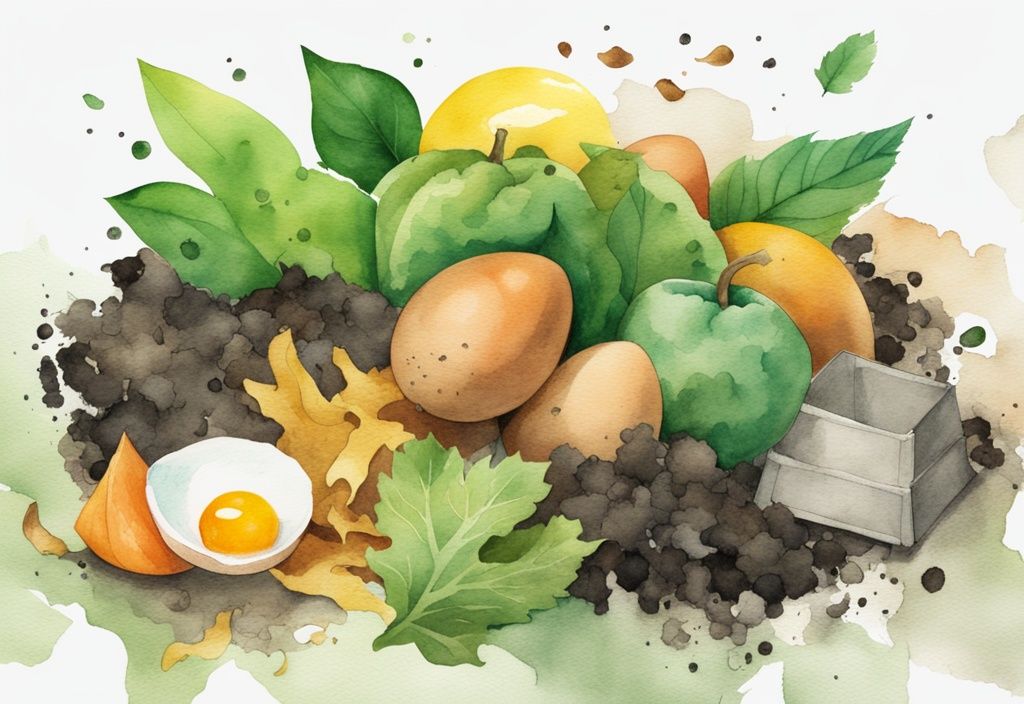
Paperboard Egg Cartons
Paperboard egg cartons are like little eco-friendly treasures, mainly crafted from recycled paper or wood pulp. When pondering the question, can egg cartons be composted, paperboard versions give us a resounding yes, but with a few conditions.
These cartons are biodegradable and break down efficiently in a compost pile, especially when they are free from stickers and ink, which can slow the decomposition process. I’ve learned over the years that tearing them into small pieces can speed things up. This simple act increases the surface area, allowing microorganisms more access and accelerating the breakdown. Think of paperboard egg cartons as a vital carbon source, or “brown” material, in your compost pile.
Now, the magic of composting lies in the delicate balance between carbon-rich materials and nitrogen-rich materials, or “greens,” like kitchen scraps and garden clippings. Ideally, you want a ratio of about 30 parts carbon to 1 part nitrogen. Adding these paperboard egg cartons helps maintain this balance, ensuring that your compost pile runs smoothly and produces nutrient-rich soil. In my experience, this balance promotes robust microbial activity, helps prevent foul odors, and avoids slow decomposition.
Understanding how can egg cartons be composted and their role in this balance is the key to effective composting. It’s fascinating to see how something as simple as an egg carton can contribute to a healthier environment. And, just by making careful choices and little adjustments, we can create compost that nourishes our gardens and our planet.
Plastic and Styrofoam Egg Cartons: Can They Be Composted?
When pondering, “can egg cartons be composted?” it’s crucial to understand the different materials that make up these cartons. Both plastic and Styrofoam egg cartons present particular challenges in the composting process.
Plastic Egg Cartons
Plastic egg cartons, which are primarily composed of polyethylene terephthalate (PET), fall short when it comes to composting. They lack biodegradability but can be recycled. By recycling PET plastic, we reduce environmental harm. This not only diverts waste from landfills but also enables the creation of new products from recycled materials.
Foam Egg Cartons
Foam egg cartons, crafted from polystyrene, are even trickier to manage. Polystyrene isn’t biodegradable or compostable, making it exceptionally challenging to recycle. Moreover, its persistence in our environment often results in pollution and can be detrimental to wildlife.
Disposal Recommendations
For both plastic and foam egg cartons, recycling is the ideal disposal method, provided your local recycling facilities accept these materials. If not, disposing of them with regular household waste is recommended. This approach aids in more effective waste management and reduces environmental damage.
Step by Step Guide to Composting Paperboard Egg Cartons
Paperboard egg cartons are more than just housing for your eggs; they can also be a part of your sustainable composting strategy. Below are simple yet effective methods to turn these cartons into valuable compost, along with tips for maintaining a healthy compost pile.
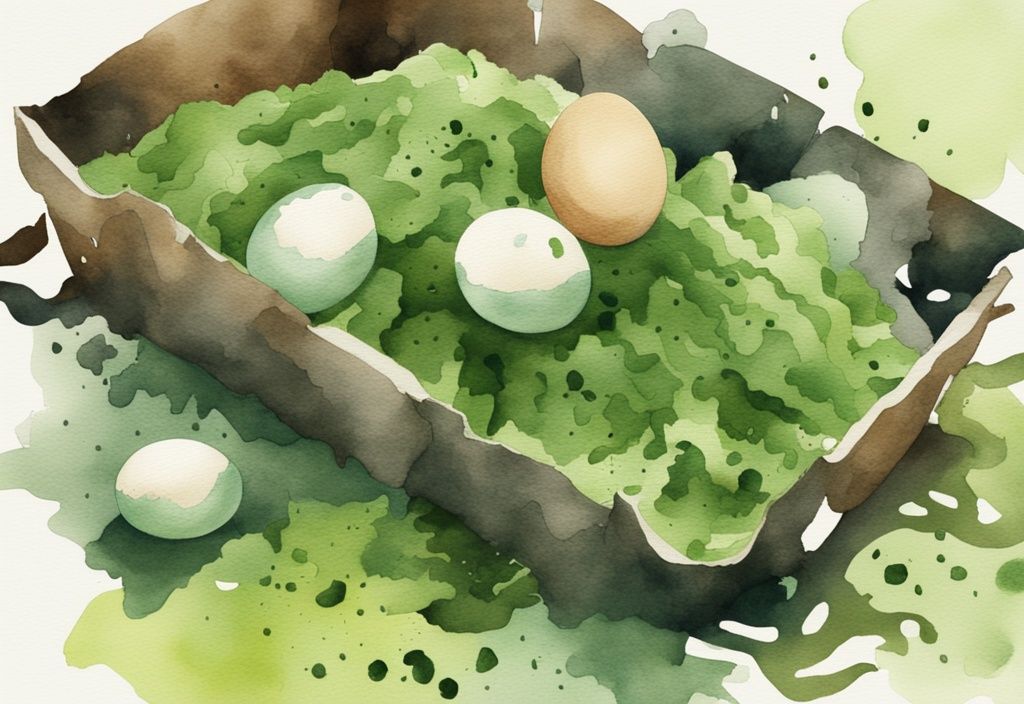
Quick and Easy Composting Method
Method #1: Rip and Tear
Removing any stickers from paperboard egg cartons is crucial before composting. Once you’ve taken off the stickers, rip or cut the cartons into small pieces. This step helps mix them more effectively into your compost pile, ensuring they integrate well with other compost materials. Smaller pieces decompose more quickly, making your composting process more efficient.
Method #2: Blend it like a Smoothie
Another efficient way to compost paperboard egg cartons is by blending them. Start by removing any stickers from the cartons. Tear the carton into smaller pieces and blend them with water until a smooth mixture forms. Pour this blend into your compost pile. This method accelerates decomposition by increasing the surface area of the material, allowing it to break down more quickly.
Incorporating Egg Cartons into Your Existing Compost Pile
Paperboard egg cartons can serve as a valuable addition to your compost pile when managed correctly. Below are key considerations for ensuring they decompose efficiently.
Understanding Carbon-to-Nitrogen Ratio
One of the key factors in successful composting is maintaining a balanced carbon-to-nitrogen ratio. Paperboard egg cartons act as a carbon-rich (brown) material in the compost pile. Combining these with nitrogen-rich (green) materials, such as kitchen scraps, maintains an optimal composting environment. The ideal C:N ratio for composting is approximately 30:1, ensuring efficient breakdown and nutrient-rich compost.
Maintaining Proper Moisture and Aeration
Proper moisture and aeration are essential for a healthy compost pile. The compost should be moist, similar to a wrung-out sponge, but not waterlogged. Overly wet compost can become anaerobic, leading to foul odors and slowed decomposition. To facilitate aeration, turn the compost pile regularly. This promotes oxygen flow, encouraging microorganisms to break down organic matter effectively.
Navigating Common Composting Concerns: Ink and Egg Residue
Egg cartons come with their own set of challenges when added to your compost pile. Below are solutions to common concerns about ink and egg residue.
Dealing with Inked Egg Cartons in Your Compost
Inked egg cartons can pose a challenge due to potential heavy metals in colored inks. To minimize risk, use the bottom half of the carton, which often remains ink-free. Following organic composting standards, avoid materials with colored inks. Vegetable-based inks are generally considered safe for composting and are a preferable choice.
How Egg Residue on Cartons Affects Composting
Small egg residues on cartons can be composted, particularly if your compost pile reaches high temperatures and the residue is minimal. However, large amounts of egg residue might attract pests. It’s essential to ensure the cartons are clean and free from significant food residues to prevent attracting pests and causing issues within the compost pile. Properly managed, egg cartons can be a safe and effective part of your composting strategy.
Comparing Recycling and Composting Egg Cartons
When pondering the question, “Can egg cartons be composted?” it’s crucial to explore the benefits and processes involved in both recycling and composting. Each method offers unique advantages and optimal scenarios for use.
Recycling Paper Egg Cartons
Recycling paper egg cartons is a straightforward way to reduce waste and support the circular economy. When these cartons are free from stickers, inks, and food residue, they can be processed through standard recycling programs. This clean paper is re-pulped and used to create new paper products, conserving resources and reducing the need for virgin materials.
Composting Paper Egg Cartons
Can egg cartons be composted? Absolutely. Composting paper egg cartons is a fantastic way to turn biodegradable materials into nutrient-rich soil amendments. When shredded and mixed into compost piles, they serve as carbon-rich brown material. This helps balance the nitrogen-rich green materials like kitchen scraps, maintaining the crucial carbon-to-nitrogen ratio for effective composting. Through this process, you enrich your soil, improve its structure, and enhance plant growth naturally.
Recycling Foam and Plastic Egg Cartons
Foam and plastic egg cartons are a different story. These materials are not biodegradable and cannot be composted. Foam cartons, made from polystyrene, and plastic cartons, typically made from PET, should be recycled through appropriate programs. Polystyrene recycling is challenging, but some specialized facilities can handle it. PET plastic is more commonly accepted in recycling programs, making it a better option for reducing landfill waste. If local recycling options are unavailable, disposing of these cartons through regular trash may be necessary, though it’s less eco-friendly.
Key Takeaways
Understanding the disposal methods for egg cartons empowers you to make choices that benefit the environment. Recycling paper egg cartons reduces waste and conserves resources, while composting transforms them into valuable materials for gardening. Foam and plastic cartons, due to their non-compostable nature, should be recycled to minimize their environmental impact. For those wondering, using products like Simple Green is non-toxic and can be a great eco-friendly choice for your cleaning needs.
By choosing the appropriate method for each type of egg carton, you support more sustainable waste management practices, contributing to a healthier planet.
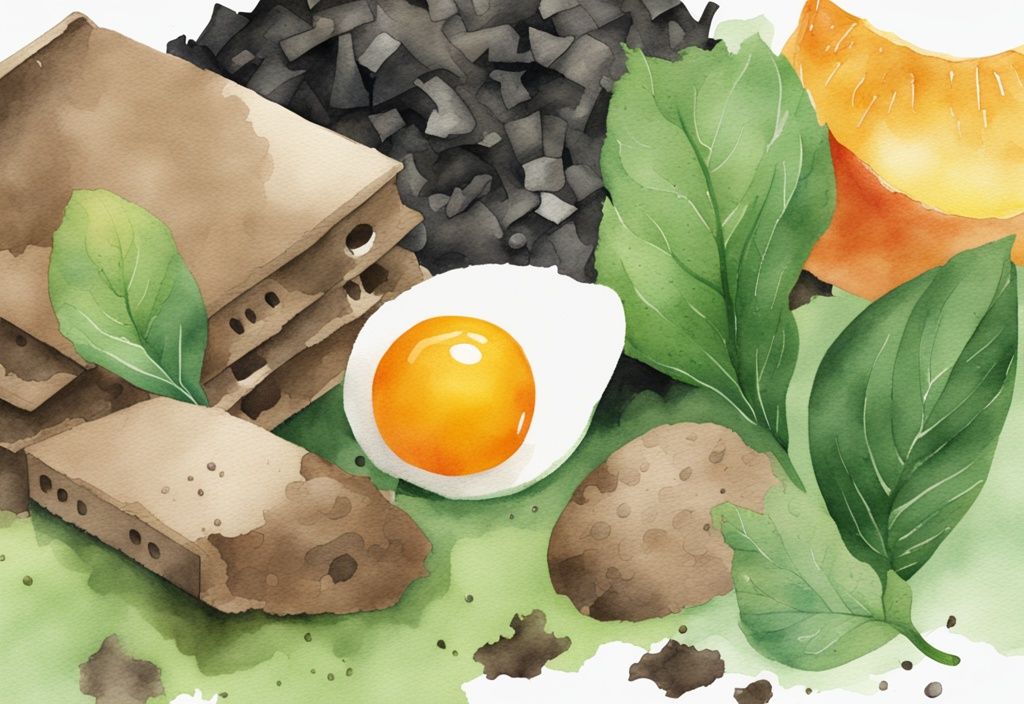
Your FAQs Answered: Composting Egg Cartons
Composting egg cartons can sometimes feel like a confusing process, especially when it comes to safety and sustainability. Let’s dive into some common questions and clarifications to keep your composting efforts as green and effective as possible.
Is ink on paper egg cartons safe for composting?
Colored inks should be avoided due to potential heavy metals. The best practice in organic composting is to steer clear of materials with harmful inks. However, vegetable-based inks are generally safe and preferred for composting.
What to do with non-compostable plastic or foam egg cartons?
Plastic and foam egg cartons are best recycled through suitable programs. If no recycling options exist, they should be disposed of as regular trash, as they are non-compostable.
How long till my composted egg cartons become usable compost?
Composted egg cartons typically become usable compost in roughly two to three months. This can vary based on temperature conditions, moisture levels, and the balance of materials in the compost pile.
Can vegetable-ink cartons be composted?
Yes, cartons printed with vegetable-based inks are safe for composting and are recommended for those adhering to organic composting practices.
Can I use composted egg cartons as garden mulch?
Indeed, the compost produced from egg cartons can be used to improve soil structure, promote plant growth, and help retain soil moisture, making it excellent garden mulch.
Conclusion
Composting egg cartons offers a practical solution for reducing household waste and enriching the soil with nutrient-rich organic material. By composting, you can significantly cut down on the amount of trash that ends up in landfills. But what about egg cartons? Can egg cartons be composted? The answer is yes, and it’s quite straightforward.
Egg cartons made from paperboard are highly suitable for composting. They not only break down easily but also contribute essential carbon, which balances the nitrogen from kitchen scraps in your compost pile. This balance is crucial for creating high-quality compost that benefits your garden. I’ve found this to be a game-changer in my own composting efforts, making the process both simple and rewarding.
Understanding the different types of egg cartons and their compostability further enhances environmentally friendly decision-making. While paperboard cartons integrate seamlessly into compost systems, plastic and foam cartons should be recycled through appropriate channels, as they lack compostable properties. It’s a small step that makes a significant impact.
By incorporating composted egg cartons into your garden, you improve soil structure, promote plant growth, and help retain soil moisture. For those of us looking to live more sustainably, composting paperboard cartons is an easy yet effective way to practice sustainability, enhancing both our personal horticultural efforts and broader environmental health.
Next time someone asks, “Can egg cartons be composted?” you can confidently inform them of the benefits and straightforward process involved. This knowledge empowers us all to make greener choices, fostering a healthier planet for future generations.
Hi, I’m Olivia Green, the voice behind nontoxicways.com. I’m passionate about helping you make the shift to a healthier, non-toxic lifestyle without feeling overwhelmed. I love sharing my personal journey, from small changes to big transformations, along with practical tips that make it all feel doable. My goal is to inspire and guide you toward a lifestyle that benefits both your well-being and the planet. Let’s take this journey together, one simple step at a time!
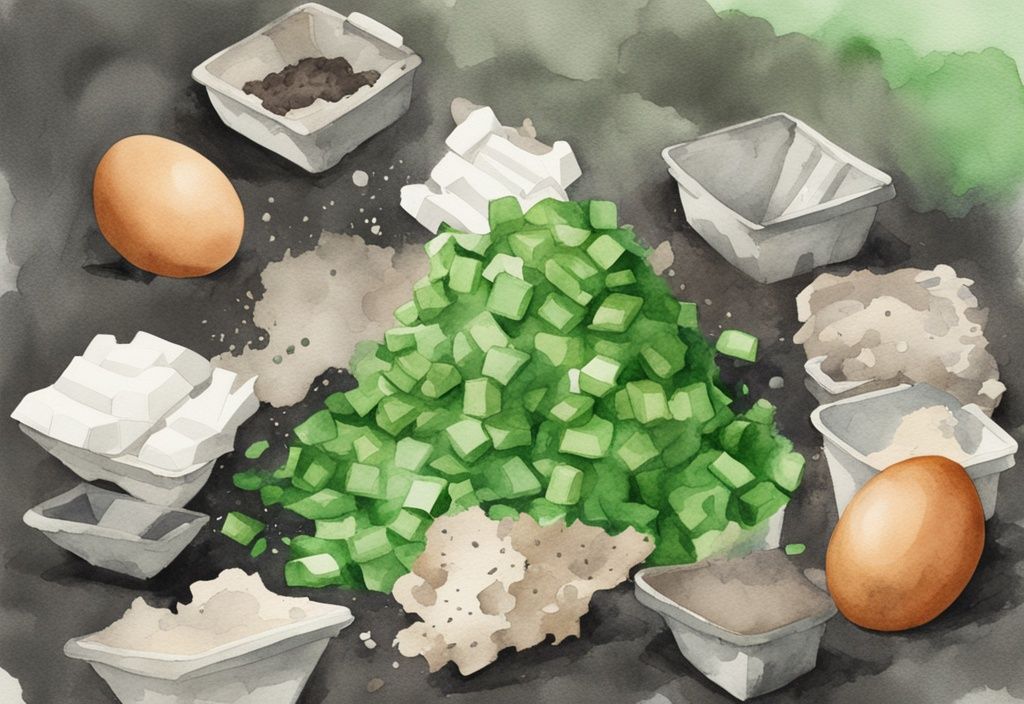
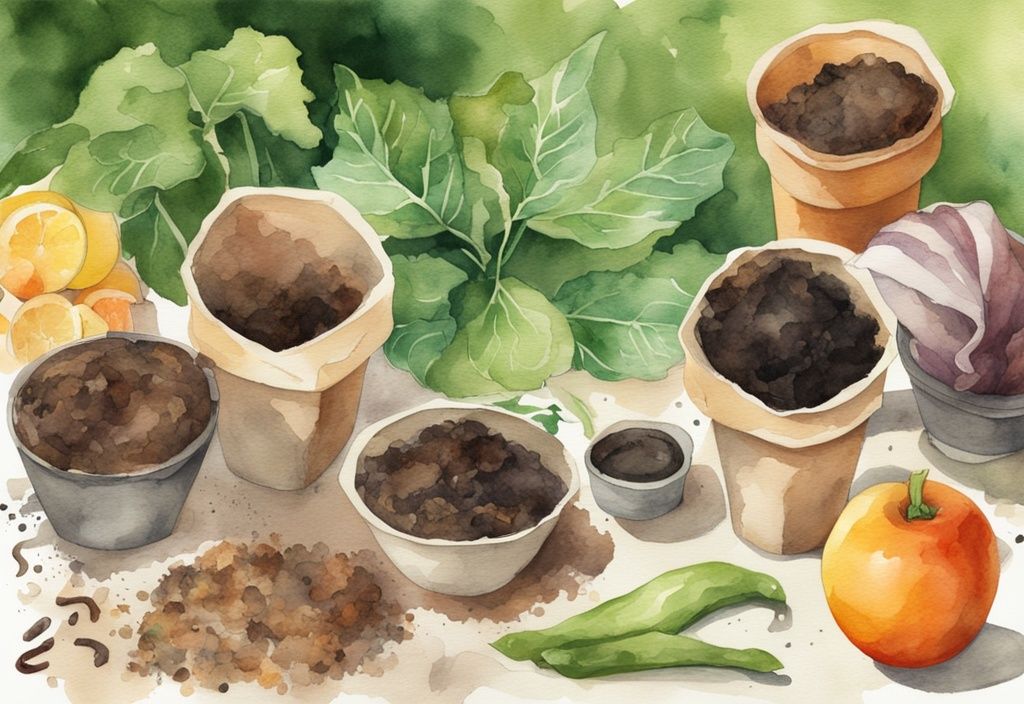
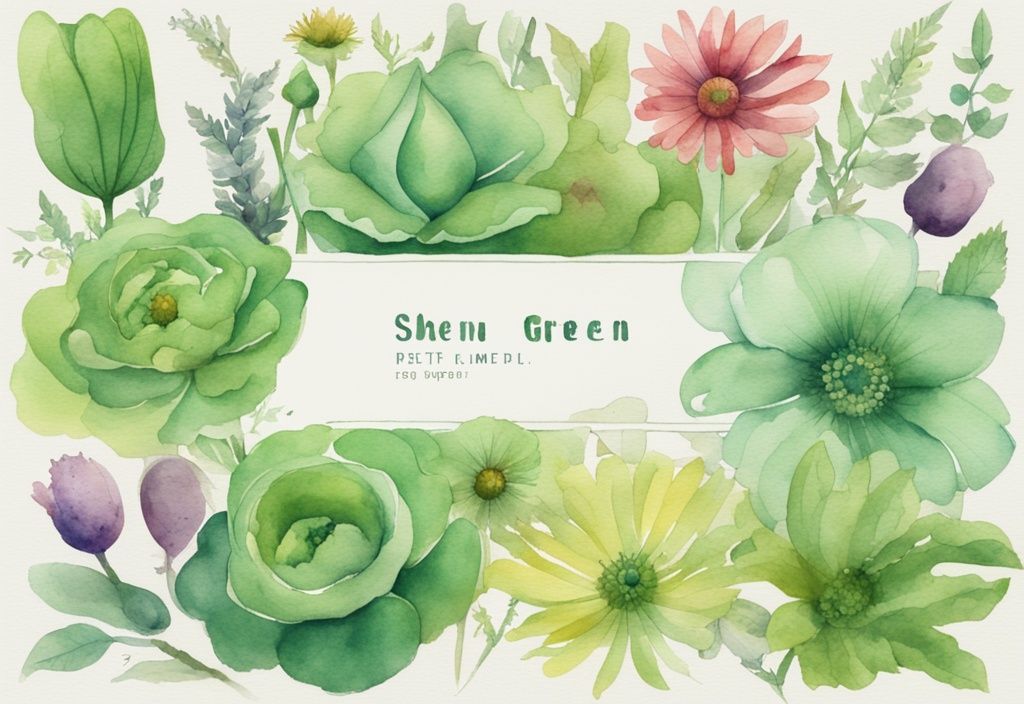
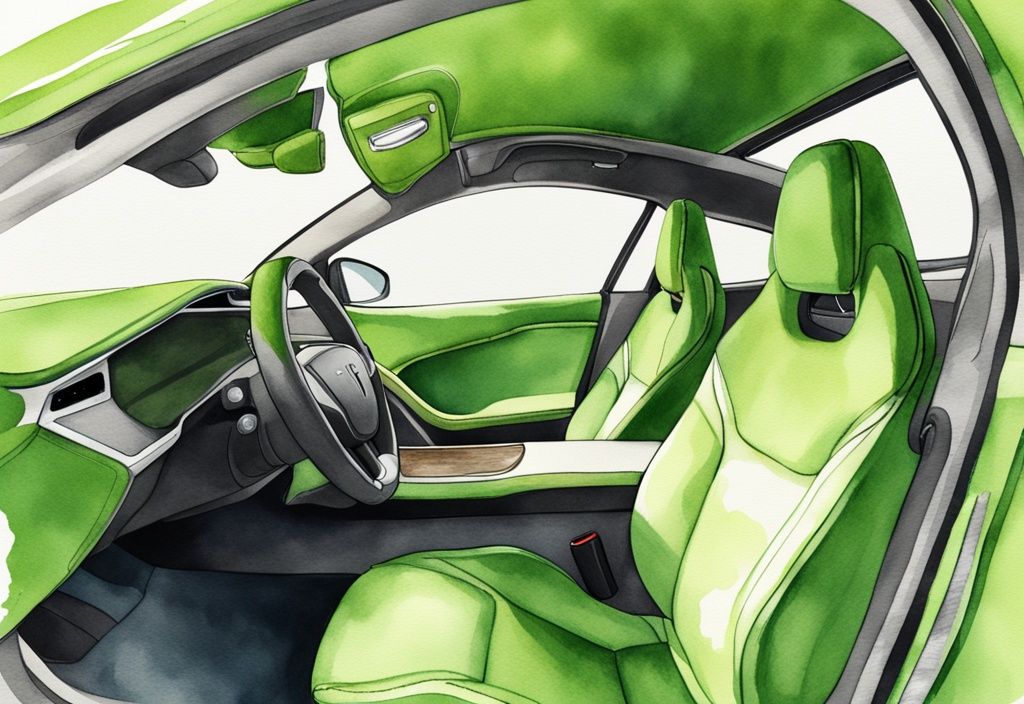
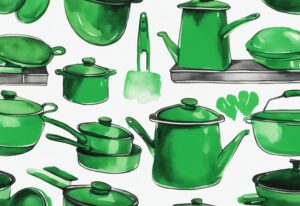



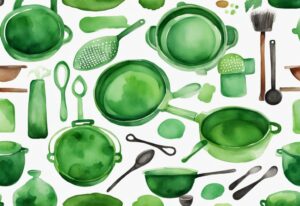



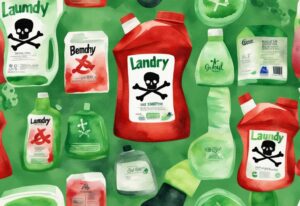
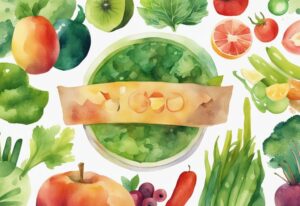
Post Comment